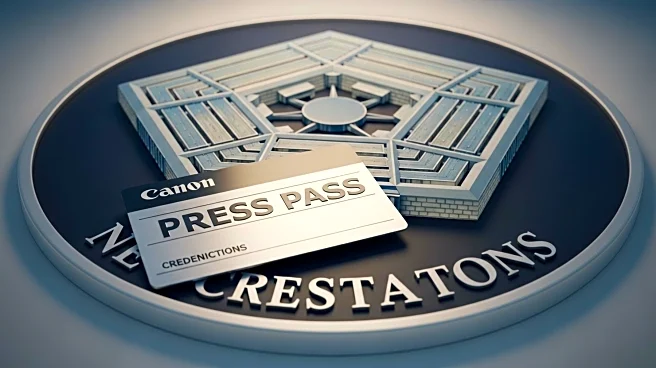What is the story about?
What's Happening?
The Pentagon has introduced new restrictions on press credentials, requiring reporters to sign a document acknowledging they will not disclose classified or controlled unclassified information without formal authorization. This move has led to negotiations between the Pentagon Press Association and the Defense Department, which have reached an impasse. The restrictions could result in journalists losing their credentials for unauthorized access or disclosure of information. The Trump administration's efforts to rename the Defense Department to the Department of War have also been noted, although congressional approval is required for a permanent change. Media outlets, including CBS News, have expressed concerns that these restrictions are at odds with constitutional protections of a free press.
Why It's Important?
The new restrictions imposed by the Pentagon have significant implications for press freedom and transparency in the U.S. The requirement for journalists to sign off on these rules could limit their ability to report on military matters, potentially stifling investigative journalism and public access to information. The move has been criticized by media organizations as a threat to the First Amendment rights of journalists, which could lead to a chilling effect on reporting. The situation highlights ongoing tensions between government agencies and the press, raising questions about the balance between national security and the public's right to know.
What's Next?
The Pentagon Press Association is urging the Pentagon to reconsider its stance, as the new policy could isolate reporters and hinder communication with sources. The Association has expressed surprise at the Pentagon's plan to relocate news organizations from their dedicated workspaces, which could further complicate reporting efforts. The Pentagon has stated that it has engaged in good-faith negotiations and accepted many suggested edits from the press corps. However, the press corps remains concerned about the potential for prosecution and loss of access, indicating that further discussions and possible legal challenges may ensue.
















